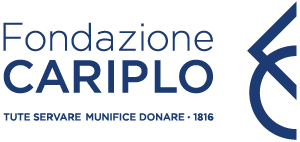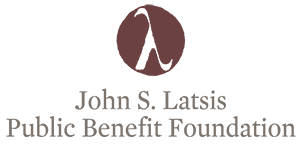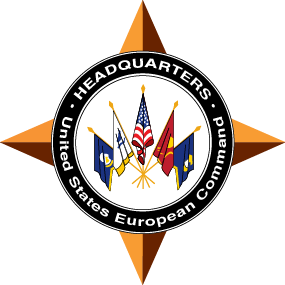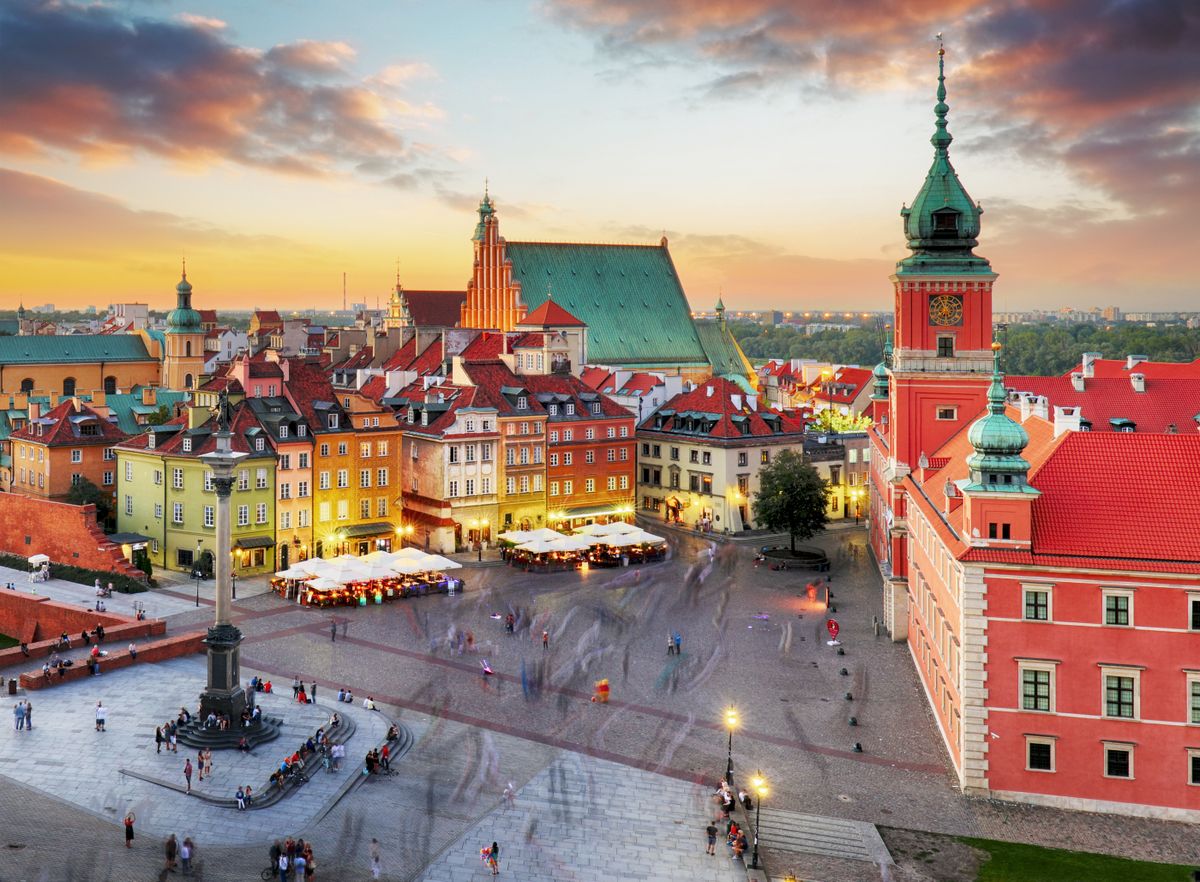
Summary
About
The Warsaw European Young Leaders seminar focused on present challenges and future solutions, but the past cast a long shadow.
Opening sessions were held in the Palace of Culture and Science, a towering reminder of Soviet rule, and the seminar closed after an inspirational meeting with Holocaust survivor, Marian Turski, who shared his experiences of rise of Nazism and warned the Young Leaders not to take their freedom for granted. In between, the seminar explored contemporary issues stemming from the roots of populism and the meaning of “European values” in the 21st century, to cybersecurity and ocean pollution.
Held under the heading of ‘Make or Break Europe’, the Warsaw meeting was the first for the European Young Leaders class of 2018, who brought experience in fields ranging from politics, business and civil society to astrophysics, architecture and the military. The seminar included a public engagement session, bringing in members of the Warsaw public to join the Young Leaders for a brainstorm on concrete measures to restore trust between voters and politicians.
Recommendations that emerged from this session included: a call for more voter control over local-authority spending through participatory budget planning; stimulating political education from an early age; and more purposeful engagement between politicians and the public at local level.
The European Young Leaders (EYL40) programme was launched in 2012, with the goal of bringing together 40 of Europe’s brightest minds every year – aged 40 and under – to debate challenges facing the continent and search for solutions. The programme was initially conceived by Friends of Europe in partnership with EuropaNova.
Schedule
From Communism to Populism – How did we get here?
Authoritarians in Europe and the world are on the rise, and electorates are seduced by extremes that could bring down liberal democracy.To fight back, mainstream politicians need to grasp the causes of popular discontent and rebuild democracy’s moral foundations.
Speaker
Marcin Walecki
Head of the Democratization Department at the Office for Democratic Institutions and Human Rights (OSCE/ODIHR)
Peer-to-Peer Exchange
What makes a good leader? In this session, Young Leaders will be divided into groups of 8-10 to exchange experiences and insight from their leadership journeys. Each group will present a summary of their discussion to the wider group in five minutes.
Led by
Agnija Šeiko
General Manager, Artistic Director and Choreographer of the Šeiko Dance Company and 2017 European Young Leader (EYL40)
What defines European values in the 21st Century?
Across the continent, populists on both sides of the political spectrum are rising; economic inequality is increasing; the advent of digital technologies is speeding up the rate of change in our societies; even the nature of privacy and social interaction has been transformed in the early part of the 21st century. This rapid pace of change has created an atmosphere of uncertainty, for good or ill, facilitating social division and increased competition to establish a dominant narrative which is capable of directing the remodelling of European values, as has is being illustrated in Britain, Poland, and Hungary.
Has Europe lost the moral high-ground? What now defines European identity and values? In which areas should we seek to protect traditional European characteristics, and which are in need of a 21st century overhaul?
Introductory remarks by
Caroline de Gruyter
Author and EU Correspondent at NRC Handelsblad
Franziska Brantner
German Parliamentary State Secretary for Economic Affairs and Climate Action, Trustee of Friends of Europe and 2012 European Young Leader (EYL40)
On the occasion of International Women’s Day and the 100 anniversary of the Suffragettes’ movement, this dinner will celebrate the legacy of women who have left an indelible mark on the progress of women.
European Young Leader contribution by
Alexandra Dariescu
Award-winning concert pianist, Piano Professor at the Royal Northern College of Music and 2018 European Young Leader (EYL40)
Dionysis Grammenos
Founder and Music Director of the Greek Youth Symphony Orchestra and 2018 European Young Leader (EYL40)
Agnieszka Dziemianowicz-Bak
Polish Minister of Family, Labour and Social Policy and 2018 European Young Leader (EYL40)
Jesse Klaver
Member of the Dutch House of Representatives, Leader of the Dutch green party GroenLinks, Trustee of Friends of Europe and 2018 European Young Leader (EYL40)
How cities are leading the way forward on European cooperation
By acting at the local level to solve economic, social, and environmental issues, cities can bypass national political discord to create partnerships full of opportunities that accelerate action on issues affecting the daily lives of citizens across Europe. Cities are also teaming up, creating coalitions and sharing knowledge and innovative solutions to the greatest challenges facing Europeans. From climate change to migration, these strategic partnerships are rooted in substantial projects and initiatives that reflect cities’ ambitions, priorities and interests, giving them an increasingly prominent role in multilateral cooperation at the European level.
Where can cities have the greatest impact in bridging the gap between the EU and its citizens? Can European solidarity be reinvigorated at a city level? Does inter-city cooperation offer a more effective alternative to regional and international cooperation?
Introductory remarks by
Hanna Gronkiewicz-Waltz
Mayor of Warsaw
Nasima Razmyar
Member of the Finnish Parliament and 2018 European Young Leader (EYL40)
Short conversations with Young Leaders on issues that matter to them, to gain expertise from this useful network.
— 12.00 – 12.30
1 - Produced but never eaten – how to tackle food waste
Selina Juul
Chairman of the Board & Founder of the Stop Wasting Food movement, Member of the EU Platform on Food Losses and Food Waste, and 2018 European Young Leader (EYL40)
2 - Getting to the top - navigating challenges to equality and diversity in the navy
Helena Linder-Jess
Military Attachée for the Embassy of Germany to the United States of America, first female Commanding Officer in the German Navy, and 2018 European Young Leader (EYL40)
3 - Making sense of fake news
Clémentine Forissier
Editor-in-Chief of Contexte and 2015-2016 European Young Leader (EYL40)
4- The Italian election – why it matters for Europe
Lia Quartapelle
Member of the Italian parliament, Research Fellow at the Italian Institute for International Political Studies (ISPI) and 2018 European Young Leader (EYL40)
— 12.30 – 13.00
1 - Activating 21st century skills - enabling social inclusion through volunteering
Kamilla Sultanova
Kamilla Sultanova, Diversity and Equity and Inclusion (DEI) consultant, event host & moderator, and 2015-2016 European Young Leader (EYL40)
2 - The “Startup Stack”- what European start-ups need to succeed
John Collison
Co-Founder and President of Stripe and 2018 European Young Leader (EYL40)
3 - Finding a new star – what space has to offer this century
Guillem Anglada-Escudé
Astrophysicist and Exoplanet Discoverer; Ramón y Cajal Research Fellow at the Institute of Space Sciences (IEEC-CISC) and 2018 European Young Leader
4 - The Rebound Effect— a clean energy conundrum
Lukasz Dziekonski
CEO and Managing Partner of Montis Capital Fund and 2015-2016 European Young Leader (EYL40)
PARALLEL I: CYBERSECURITY
A concern for European citizens and companies?
Cyberterrorism is fast-becoming one of the main concerns of European citizens. The shift from small-scale cyber-attacks to large-scale attacks on civilian infrastructure such as hospitals, power plants and financial services has heightened the public awareness of the vulnerability of data systems, leading to increased concern about the collection and handling of personal data, and the lack of transparency and accountability of companies and governments in the cybersphere. With much of its digital and technological infrastructure in the hands of private companies, how can Europe get ahead in ensuring that public data and resources are protected from cyber-attacks? Which areas of cyber-security should fall under the mandate of national and EU institutions, and which are the responsibility of individual citizens?
Introductory remarks by
Francesca Spidalieri
Senior Fellow for Cyber Leadership at Salve Regina University’s Pell Center for International Relations and Public Policy
Ronan Murphy
Founder and Chief Executive of Smarttech247
Moderator
Katarzyna Pisarska
Founder of the Casimir Pulaski Foundation, Poland
PARALLEL II: OCEANS
The plastics paradox: a dilemma for consumers
The velocity of the consumption of plastic as a cheap, disposable commodity has been exacerbated by the rise of consumer-facing digital platforms which facilitate high-speed ‘click-to-buy’ purchases with round-the-clock delivery. In parallel, citizens and nation states are convinced of the need to tackle environmental damage caused and climate change linked to human activity. Supermarkets and small retail outlets are pressured to reduce and recycle plastic waste whilst simultaneously feeding mass consumption. Meanwhile, oceans have become dumping grounds for all manner of plastic waste, which has now become such a blight on ecosystems that plastics are now found in the deepest and furthest reaches of the marine environment.
Introductory remarks by
Rashid Sumaila
Professor & Director of the Fisheries Economics Research Unit, University of British Colombia and recipient of the Peter Benchley Ocean Award for Excellence in Science
Ulrike Sapiro
Director Sustainability & Stakeholders - Europe, Middle East & Africa, The Coca-Cola Company
Moderator
Dharmendra Kanani
Chief Operating Officer and Chief Spokesperson of Friends of Europe
Increasingly an antidote to the breakdown of relationship and trust between citizens and governments is to trial different forms of citizens’ participation, engagement and direct democracy. Across the world and in Europe there are examples where citizens are being engaged in co-deciding budgets, urban planning, healthcare standards and even a constitution. While it’s still early to tell it appears that this can have a revitalising effect on the relationship and provide greater confidence and trust among citizens about how they are governed but more importantly to have a stake in how their livelihoods develop and to play a part in improving how this takes place.
Key questions:
1/ Do you think your vote matters?
2/ Do you believe your political representatives will follow through their promises?
3/ Would you want to be involved in decision making at local, national and European level?
Based on these questions, the session will aim to identify 3 key recommendations for ways to improve the direct participation of citizens in European democracies based on the input of local Warsaw citizens, the European Young leaders and the voices and views of citizens across Europe through their engagement on the Debating Europe platform. These recommendations will also be translated into a series of live, pan-European debates on direct democracy and shared with EU decision makers in the lead up to the 2019 European elections.
This session is organised in partnership with:
Office of the Mayor of the City of Warsaw, Office of the Polish Ombudsman, Casimir Pulaski Foundation
European Young Leader contributions by
Stefania Kapronczay
Executive Director at the Hungarian Civil Liberties Union (HCLU) and 2018 European Young Leader (EYL40)
Sammy Mahdi
Secretary of State for Asylum and Migration and 2018 European Young Leader (EYL40)
Short conversations with Young Leaders on issues that matter to them, to gain expertise from this useful network.
— 10.00 – 10.30
1 - One year on - are women changing the Republican party?
Meghan Milloy
Co-Founder & Executive Director of Republican Women for Progress and 2017 North American Young Leader
2 - Voice building for the unheard by and for a new generation – fighting political apathy and changing a consensus
Nassira El Moaddem
Journalist, Author and Presenter, Arrêt Sur Images and 2018 European Young Leader (EYL40)
3 - Could going off-grid help solve our housing problems?
Tomáš Žáček
CEO, Ecocapsule and 2018 European Young Leader (EYL40)
4 - AI for the greater good – how machine learning can have a positive social impact
Rebeca Minguela
Founder and CEO of Clarity AI and 2018 European Young Leader (EYL40)
— 10.30 – 11.00
1 - Designing urban places in China - money, culture and history
Beatrice Leanza
Cultural Strategist, Museum Director and 2018 European Young Leader (EYL40)
2 - How a simple sticker can reduce pollution
Robert Shirkey
Executive Director of Our Horizon and 2017 North American Young Leader
3 - Time for an alternative approach to banking
Max von Bismarck
Chief Business Officer & Managing Director, Deposit Solutions and 2014 European Young Leader (EYL40)
Reflecting on the past to protect Europe’s future
Marian Turski is a Polish-Jewish historian and journalist. Having survived the Auschwitz-Birkenau concentration camp and two death marches in 1945, Turski has become an important personality of the Jewish community in Poland and for the memory of the Holocaust. Turski and his family were deported to the Auschwitz killing center in 1944, where his father and most likely his brother were murdered upon arrival. He was later transferred to the Buchenwald concentration camp, and was liberated at Theresienstadt after surviving a death march from Buchenwald. Since then he has had a distinguished career as a journalist, heading the historical section of the Polityka weekly since 1958 and has been involved in the POLIN Museum of the History of Polish Jews Project since its beginning.
Speakers
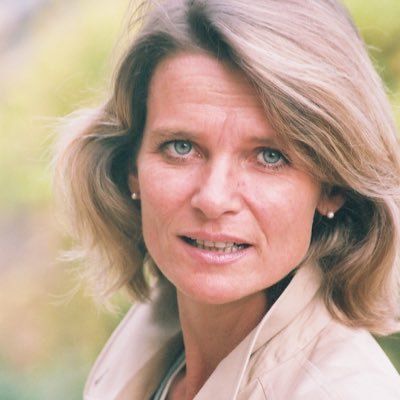
Author and EU Correspondent at NRC Handelsblad
Caroline de Gruyter is a well-known European affairs correspondent for the leading Dutch newspaper NRC Handelsblad, currently based in Oslo. She is a regular commentator on the rise of populism, the use of the Internet in counter anti-immigrant and Eurosceptic messages on what the EU and its member states can do to create a greater sense of unity. An author of several books on Europe, she has been awarded three prestigious Dutch prizes and the Prix du Mérite Européen for political reporting of exceptional quality.
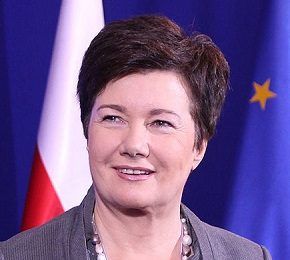
Mayor of Warsaw
Hanna Gronkiewicz-Waltz is a Polish lawyer, Professor of Jurisprudence and politician who serves as Mayor of Warsaw since 2006, the first female politician to hold this position. Before becoming Mayor of Warsaw, she was the Chairperson of the National Bank of Poland, the central bank of Poland and, later on, Vice-President of European Bank for Reconstruction and Development.
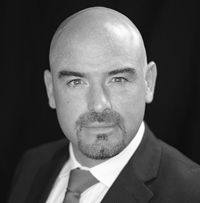
Founder and Chief Executive of Smarttech247
Ronan Murphy is founder and Chief Executive of Smarttech247, a leading international Cyber Security Operations Centre service provider. From small businesses to large enterprises, they offer original solutions to security challenges, ensuring peace of mind and business continuity to clients. Murphy has played a pivotal role Smarttech247’s innovative approach to security solutions, working daily with an elite team of engineers, support teams and sales executives who are building Smarttech247 into a global leader in managed security services. They were the first European facility to implement IBM Watson for cybersecurity purposes, using AI to track and improve response times for cyber breaches. The company now delivers managed security to some of the world’s leading companies and governments, operating from 3 international locations.
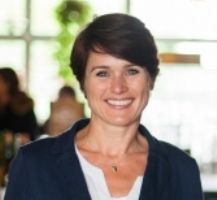
Director Sustainability & Stakeholders - Europe, Middle East & Africa, The Coca-Cola Company
Ulrike Sapiro is Director for Sustainability in Europe and responsible for Sustainability & Stakeholders in the Coca-Cola Public Policy Center for Europe, Middle East & Africa. In her role, Ulrike leads strategy, policy, programs and stakeholder engagement across the Company’s strategic priorities, including packaging and circular economy, water, sustainable agriculture and the system’s contribution to society, notably women and youth empowerment. Outside of her work at Coca-Cola, Ulrike is the President of the Sustainable Agriculture Initiative Program (SAI), Chair on the European Soft Drink Association, and an active member in the European Water Partnership.
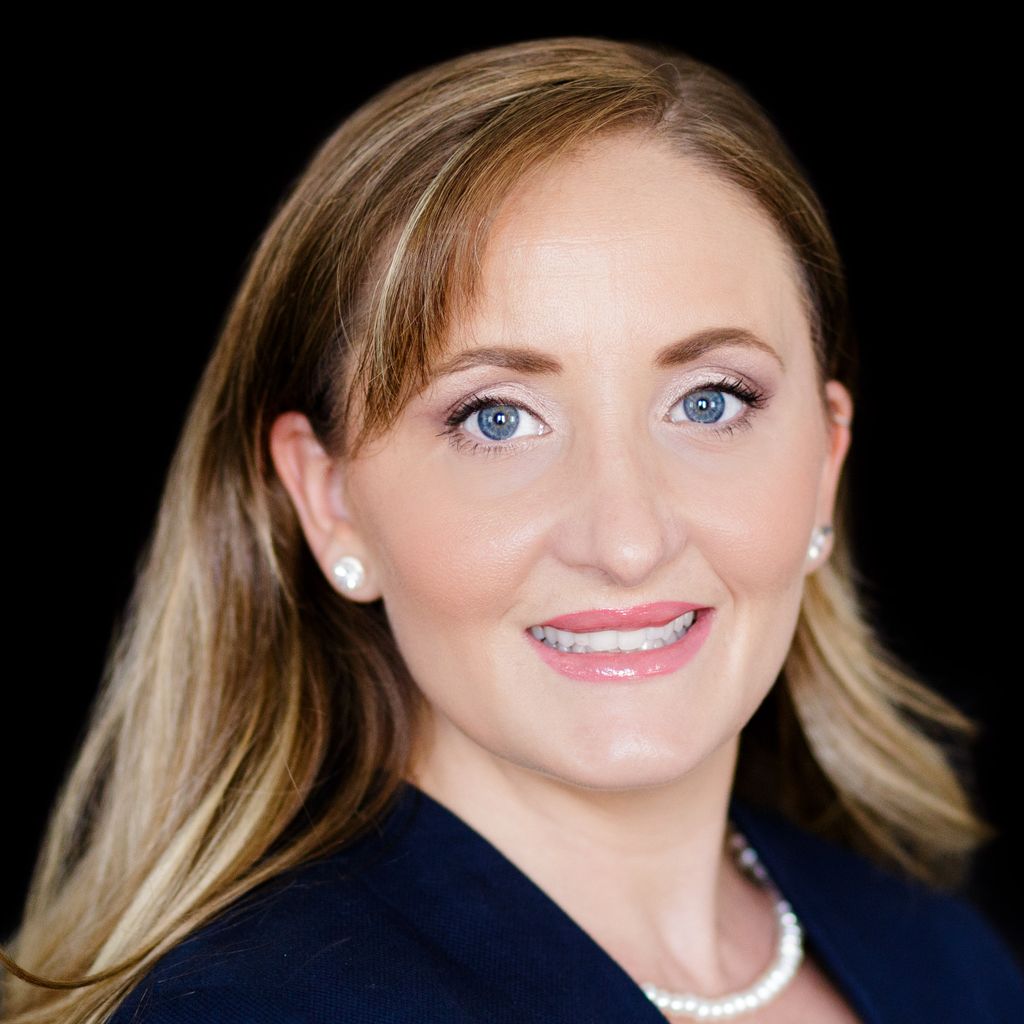
Senior Fellow for Cyber Leadership at Salve Regina University’s Pell Center for International Relations and Public Policy
In addition to her academic expertise in cyber leadership development, national cyber resilience and risk management, Francesca Spidalieri also holds the post of Co-Principal Investigator for the Cyber Readiness Index project at the Potomac Institute for Policy Studies where she has worked to develop a practical blueprint for countries to understand and address their cyber vulnerabilities. Spidalieri is also a Distinguished Fellow at the Ponemon Institute, and regularly lectures on cyber-related issues across the United States.
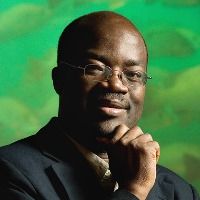
Professor & Director of the Fisheries Economics Research Unit, University of British Colombia and recipient of the Peter Benchley Ocean Award for Excellence in Science
Dr. Rashid Sumaila is Professor and Director, Fisheries Economics Research Unit & the OceanCanada Partnership at the University of British Columbia. He specializes in bioeconomics, marine ecosystem valuation and the analysis of global issues such as fisheries subsidies, illegal fishing, climate change and oil spills. Sumaila has published extensively, and is winner of various honours and awards, including the 2017 Volvo Environmental Prize, 2017 Benchley Oceans Award in Science, and the 2016 UBC Killam Research Prize. Sumaila’s research has generated a great deal of interest, and has been cited by The Economist and The Boston Globe, among others.
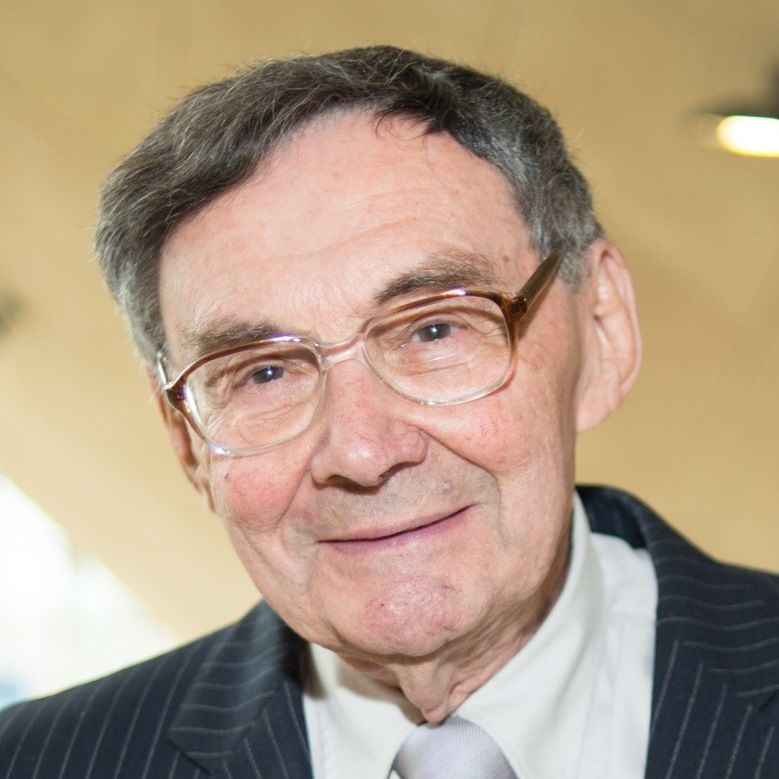
Deputy Chairman of the Association of the Jewish Historical Institute of Poland
Marian Turski is a Polish-Jewish historian and journalist. He has headed the historical section of the Polityka weekly since 1958 and has been involved in the POLIN Museum of the History of Polish Jews project since its beginning. Having survived the Auschwitz-Birkenau concentration camp and two death marches in 1945, Turski has become an important personality of the Jewish community in Poland and for the memory of the Holocaust. As such, he is also a member of the Central Board of the Association of Jewish Combatants and Victims of the Second World War and Deputy Chairman of the International Auschwitz Committee.
Partners
Coorganized with
Continue
the debate on
- Debating Europe

